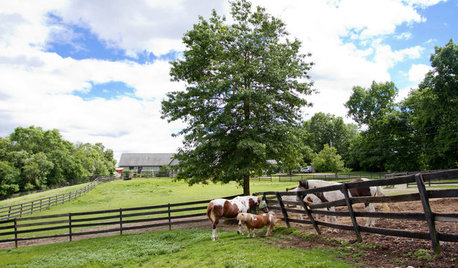Squash in 'Hills' - Why?
Bob (Seattle, Zone 8a)
14 years ago
Featured Answer
Sort by:Oldest
Comments (9)
farmerdilla
14 years agoweirdtrev
14 years agoRelated Professionals
Barrington Hills Landscape Architects & Landscape Designers · Carson Landscape Architects & Landscape Designers · Mountain Brook Landscape Architects & Landscape Designers · Wilmington Landscape Contractors · Camp Verde Landscape Contractors · Dixon Landscape Contractors · Dudley Landscape Contractors · Hickory Hills Landscape Contractors · Lyndhurst Landscape Contractors · Newberg Landscape Contractors · Ramsey Landscape Contractors · Weslaco Landscape Contractors · Irvington Landscape Contractors · West Chester Roofing & Gutters · Mounds View Roofing & Guttersiam3killerbs
14 years agoMacmex
14 years agocyrus_gardner
14 years agoBob (Seattle, Zone 8a)
14 years agoplantslayer
14 years agobluekhat
6 years ago
Related Stories

EDIBLE GARDENSSummer Crops: How to Grow Squash
Almost foolproof and with cheerful flowers, squash comes in a wide range of varieties to plant in spring
Full Story
CALIFORNIA GARDENINGCalifornia Gardener's May Checklist
Only one major chore but a plethora of planting possibilities means a delightful month in California gardens
Full Story
EDIBLE GARDENSSummer Crops: How to Grow Pumpkins
Start in spring to grow your own fall decorations and have plenty left for pies
Full Story
KITCHEN DESIGN12 Rustic Touches That Add Warmth to a Kitchen
Exposed beams, chandeliers, farm tables or just a key accessory or two can bring some coziness to the heart of your home
Full Story
EDIBLE GARDENSGarden BFFs? Why Your Vegetables Are Begging for Companion Plants
Foster friendships among plants for protection from pests, pollination support and color camaraderie
Full Story
HOUZZ TOURSMy Houzz: New York Farmhouse With a Western Feel
Fourteen acres, 30 animals and 2 owners who love country style make for one happily traditional farmhouse
Full Story
TRAVEL BY DESIGNHouzz TV: Take a Leaf-Peeping Road Trip in New England
Ride along with a Houzz contributing photographer to see gorgeous autumn eye candy from New York to New Hampshire
Full Story
DECORATING GUIDESSee a Seattle-Area Home Steeped in Graciousness
Brimming with welcoming touches, this condo shows that a home short on space and decorating funds can still go long on personal style
Full Story
HOUZZ TOURSMy Houzz: Green and Modern in Pennsylvania
An architect and his wife craft a modern family home with clean lines, a warm interior color palette and an ecofriendly bent
Full Story0

GARDENING GUIDES15 Favorites for Your Summer Edible Garden
Get your summer garden off to a good start with these popular fruits and vegetables
Full Story





shebear